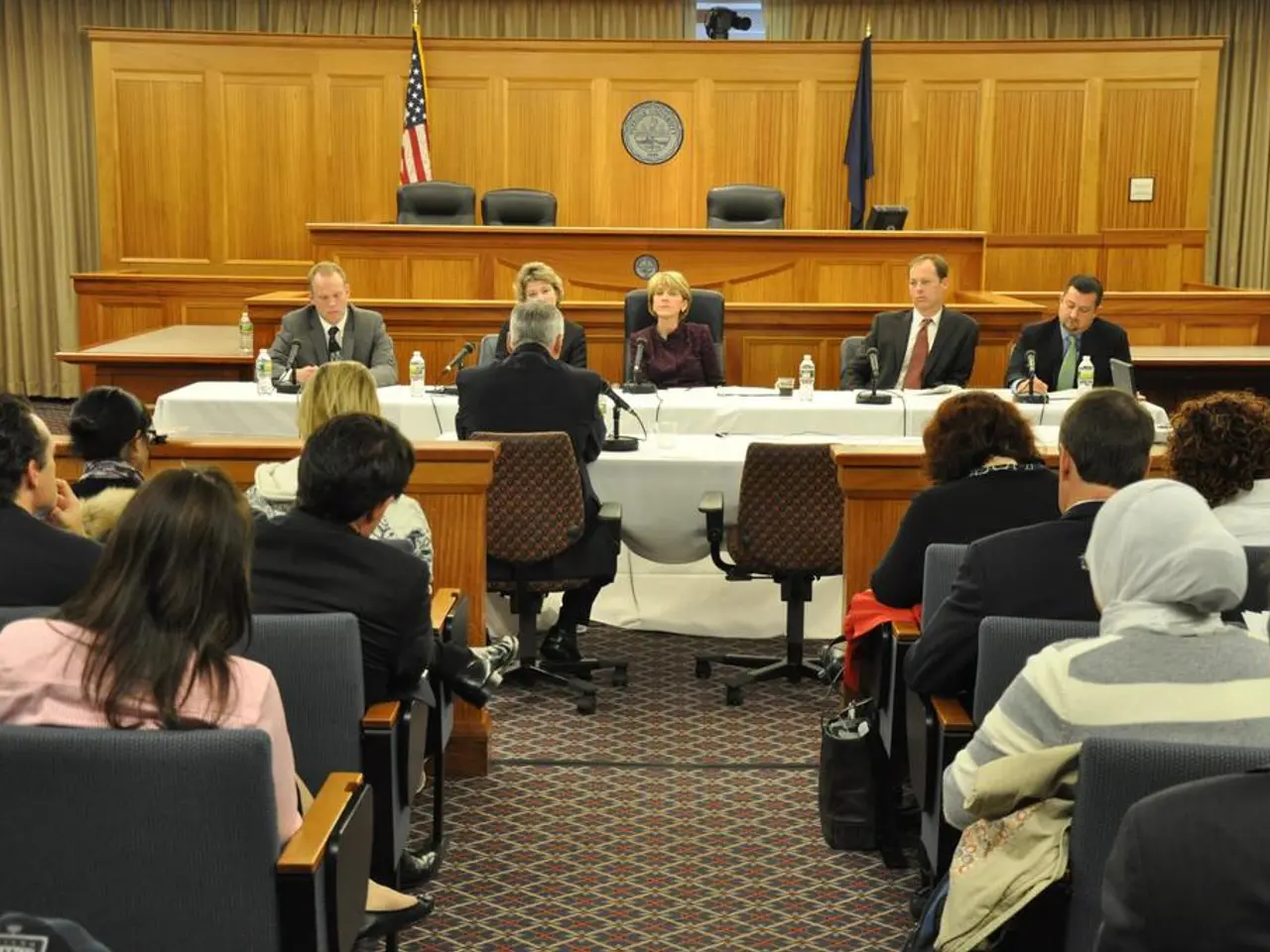Breaking: Family Reunifications Suspended for Subsidiary Protected Refugees in Germany
Parliament Temporarily Halts Refugee Family Reunification
In a highly debated move, the German Bundestag has agreed to put a temporary halt on family reunifications for refugees holding subsidiary protection status. This decision, primarily impacting Syrians, was approved by 444 out of 599 parliament members according to Bundestag Vice-President Bodo Ramelow.
Aiming for Control
Interior Minister Alexander Dobrindt hails this action as a significant triumph, asserting that it sets the agenda for managing Germany immigration during this legislative period: "Humanity and order." He believes the decision will result in a reduction of 12,000 people relocating to Germany yearly compared to the previous regulation. Dobrindt emphasizes Germany's social, educational, and housing structures have their limits, necessitating immigration control.
Transformation of Family Reunification Guidelines
The process of family reunification for subsidiary protected individuals will be restricted to spouses, minor children, and, for unaccompanied minors, their parents under specific circumstances. The existing quota system, which permitted 1,000 family members per month, will be suspended for the duration of this moratorium.
AfD's Support
The right-wing Alternative for Germany (AfD) party views the coalition's proposal as a "small step in the right direction" and has pledged support. Party spokesperson, Bernd Baumann, claims Dobrindt adopted some of the AfD's ideas.
Opposition and Criticism
Opposition erupted during Dobrindt's speech, with the Left's Luigi Pantisano accused of lying in his interruptions, triggering an official reprimand. The Left's spokesperson on refugee policy, Clara Bünger, condemned the coalition for pursuing a "xenophobic deterrent policy." The Greens criticize the move as "cruel" for leaving refugees bereft of their families, which is crucial for successful integration.
SPD's Cautious Stance
The Federal Government's Commissioner for Integration, Natalie Pawlik (SPD), acknowledges the need to divert discourse away from negative migration narratives, emphasizing the opportunities migration offers to German society. Despite supporting the suspension, SPD parliamentary group's domestic policy spokesman, Sebastian Fiedler, admits it is a topic the party would not have initially championed.
Pro Asyl's Response
Pro Asyl, a refugee rights organization, voices concern over delayed family reunifications, particularly for those who have been waiting years for their relatives. The organization announces the possibility of pursuing legal steps to contest this decision and support affected individuals in court.
[1] Subsidiary protection status is granted to individuals who are not formally recognized as refugees but are allowed to stay in Germany due to risks such as torture, the death penalty, or inhumane treatment in their home country.[2] ntv.de, mdi/AFP/dpa
- Alexander Dobrindt
- Refugees
- Migration
- Pro Asyl
- Asylum policy
- German Bundestag
- The German Bundestag's decision to suspend family reunifications for subsidiary protected refugees is part of the broader assemblage of policy-and-legislation aimed at managing immigration, as asserted by Interior Minister Alexander Dobrindt.
- Amidst critics from refugee rights organizations such as Pro Asyl, the policy change announced by the German Bundestag may lead to legal challenges, in an attempt to ensure delayed family reunifications do not leave individuals bereft of their families, crucial for successful integration.





